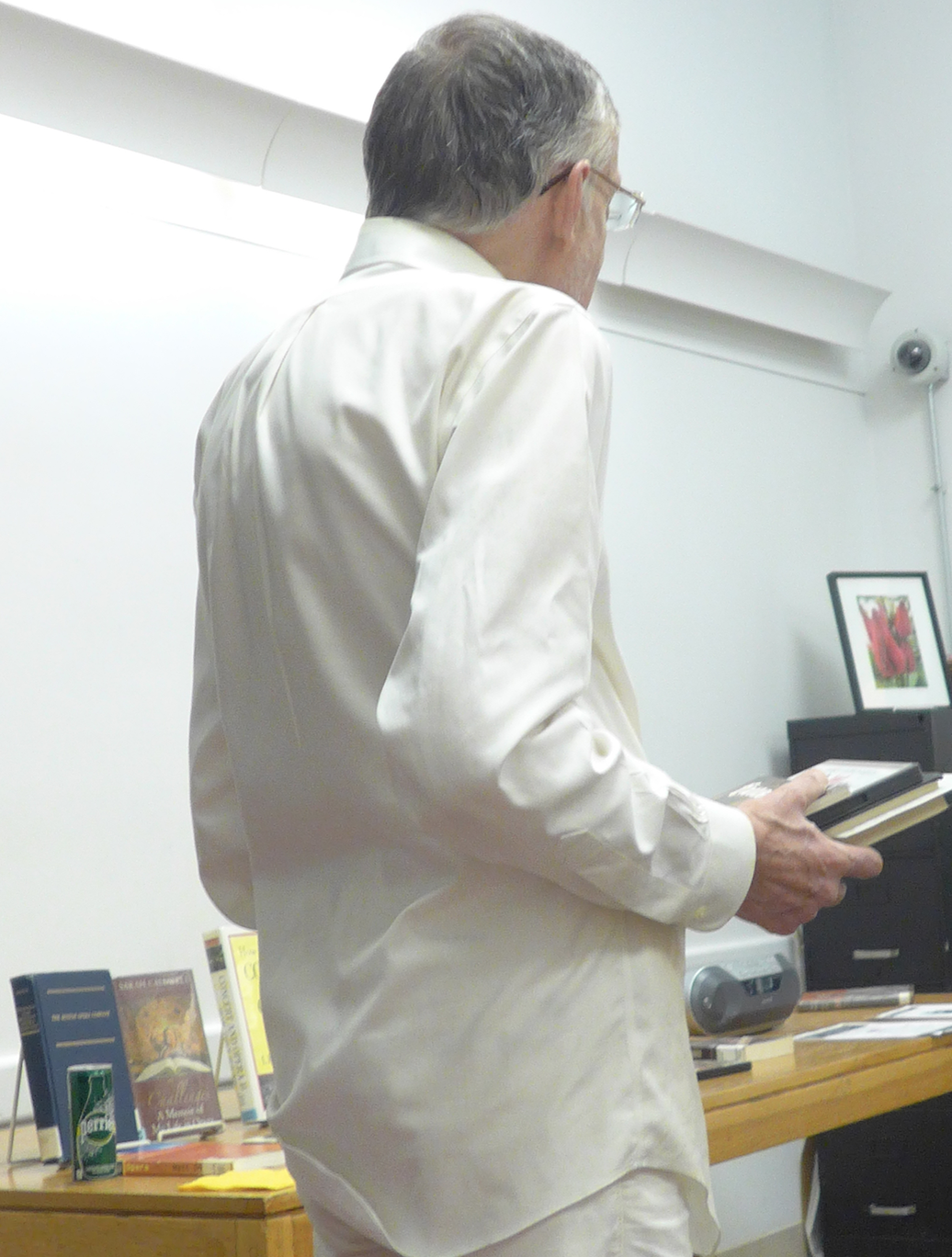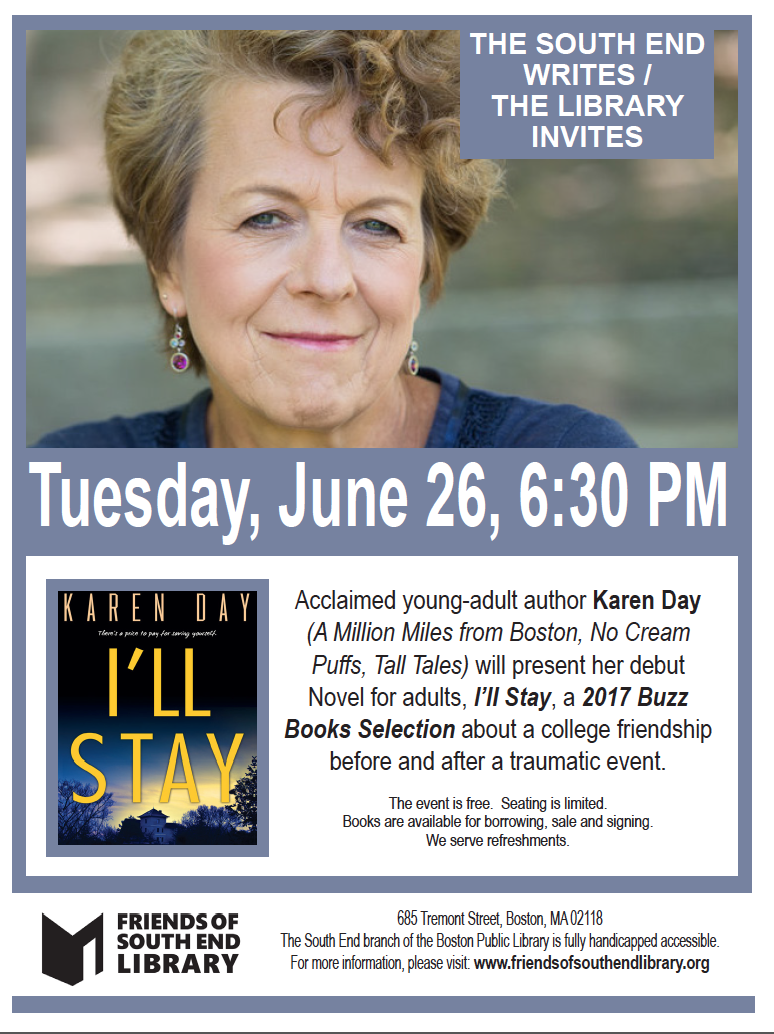Joan Wickersham first visited the South End library in May of this year when she introduced Pulitzer Prize-winning writer Megan Marshall who presented her acclaimed biography of the poet Emily Dickenson. Wickersham, herself an award-winning author and op-ed writer for the Boston Globe, also covers architecture and was immediately taken by the Michell-Giurgola design of the South End branch. “I am so pleased to be back in this beautiful library,” she said when she returned on November 30 to talk about her own work. “And I love the idea of writers speaking in libraries. It is the ‘backstage’ part of the book.”
The author of a short-story collection, The News from Spain (2012), and a memoir, The Suicide Index: Putting My Father’s Death in Order (2008), was introduced by novelist Sue Miller. She described the arc of Wickersham’s work as “going from strength to strength.”
But Wickersham would not linger on the glory: “I want to talk about the bungling that happens,” she said. “There’s a lot of bungling in writing books. When I bungle, I feel lost and stupid. But that is what writing is for me: I have to be wrong before I get it right.” To illustrate, she described how long it took to write about her father’s suicide, first as a novel, which took eight years and, as she put it, “wasn’t very good,” and then by reducing the novel’s 400-some pages to about 70. “It felt liberating,” she recalled. The process to publication of the memoir took eleven years.
She rewrote what remained not as a ‘genre’ but as an ‘index’ with fragmentary pieces and bits of stories about the suicide, in first-, second- and third-person narratives. Some of it was dark; some of it funny, but the process was deeply personal and took a long time. “Suicide interferes with memory,” she commented, “and that always had to be factored in.” When her mother died of natural causes, she knew the person who she was missing. “But missing my father had a mystery,” she explained. “The suicide was a major piece of information that interfered with my memory of him. So while I can remember writing about a good day we had, perhaps it was not a good day for him.” Some agents she showed the manuscript to loved the material and the voice, but not the organization. “The reader needs a safe place to stand,” she was told, which is how she came up with the idea of the Index.
The Suicide Index was chosen as one of the year's best books by the Washington Post, the Boston Globe, the Los Angeles Times, the Cleveland Plain Dealer and New York Magazine, among others. It was an ALA Notable Book. It won the Salon Book Award, the Ken Book Awards of the National Alliance on Mental Illness, and was a finalist for the National Book Awards.
The News from Spain, begun during a MacDowell Fellowship, was an easier project. She wrote three of the stories in six weeks. A collection of 17 short stories, each with the same title, Wickershim said they described thwarted love stories about feelings no one wanted to talk about. “In a sense both my books presented formal structures for messy materials, like a corset,” she commented. She read selections from a few, one about a middle-aged couple about to get engaged but not feeling any passion, yet, not wanting to be alone. The collection was named one of the year's best books by Kirkus Reviews, the San Francisco Chronicle, and NPR. Two of the stories were chosen for The Best American Short Stories and The Best American Nonrequired Reading.
The author has received the Ploughshares Cohen Award for Best Short Story and has been awarded grants by the National Endowment for the Arts, The Massachusetts Cultural Council, the MacDowell Colony, and Yaddo. She has taught at Harvard, Emerson, the University of Massachusetts (Boston), and the Bennington Writing Seminars.
Wickersham is currently working on a book based on the true story of a warship built in the 17th century on the order of the King of Sweden. It was deemed unsinkable. But its bronze cannons and other extravagant features made the ship so top heavy that it sank in Stockholm harbor within minutes of encountering a breeze on its maiden voyage. Wickersham might call that a bungle, too.























